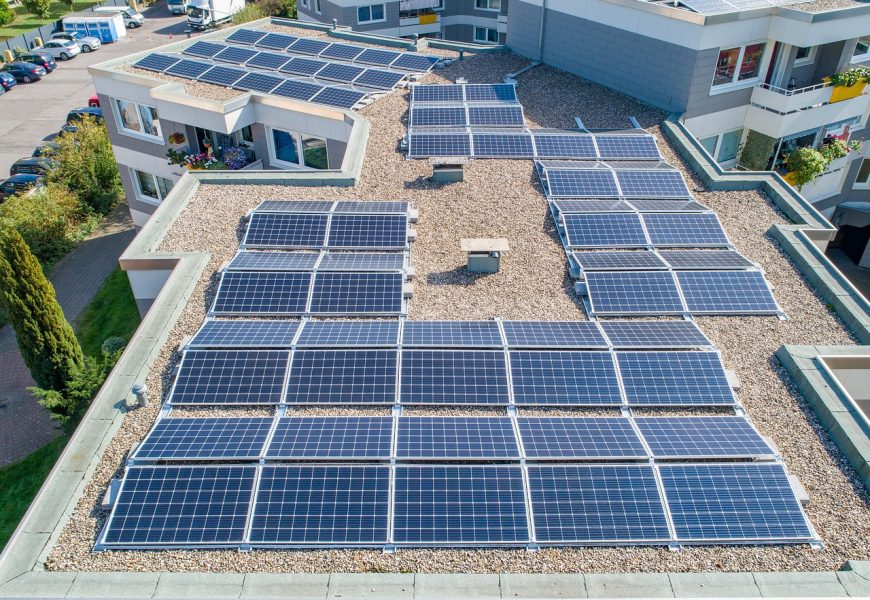In the race to address climate change and meet rising energy demands, solar power has emerged as a leading contender for a sustainable future. Traditional energy sources, like coal and natural gas, are finite and heavily polluting, whereas solar energy offers a cleaner, renewable alternative. This article explores why solar power is shaping the future of energy and how it outshines conventional sources in every aspect.
Unlimited and Renewable Energy Source
The sun provides an inexhaustible supply of energy, delivering more energy to Earth in one hour than humanity consumes in an entire year. Unlike fossil fuels, which are finite and dwindling, solar energy is abundant and widely accessible. Key benefits include:
- Abundance: The sun shines everywhere, making solar power accessible worldwide.
- Renewability: Solar energy will never run out, unlike coal, oil, and natural gas.
- Sustainability: Tapping into solar energy doesn’t deplete natural resources.
Environmental Benefits
Traditional energy sources are the primary drivers of global warming, contributing significantly to carbon dioxide emissions and environmental degradation. In contrast, solar power is a clean energy source that generates electricity without producing harmful emissions.
- Reduces Carbon Emissions: Solar panels produce electricity without greenhouse gases.
- Preserves Water Resources: Minimal water is needed for maintenance compared to fossil fuel plants.
- Protects Ecosystems: Solar energy reduces the need for mining and drilling, minimizing habitat destruction.
By adopting solar power, individuals and businesses can contribute to a healthier planet and help combat climate change.
Cost Efficiency and Economic Impact
Solar energy offers long-term financial benefits that surpass the initial investment. While the upfront cost of solar panel installation might seem significant, these systems quickly pay for themselves through lower electricity bills and energy independence.
Economic Benefits of Solar Energy:
- Lower Energy Bills: Once installed, solar systems can drastically reduce monthly utility costs.
- Government Incentives: Many countries offer tax breaks, rebates, and subsidies for solar adoption.
- Energy Independence: Generate your own power and protect yourself from fluctuating energy prices.
- Job Creation: The solar industry drives employment in manufacturing, installation, and maintenance.
Technological Advancements
The rapid pace of technological innovation has greatly enhanced the efficiency, reliability, and accessibility of solar energy. Modern solar panels are more efficient than ever, capturing and converting more sunlight into electricity.
Innovations Shaping Solar Energy:
- High-Efficiency Solar Panels: Greater energy capture even in low-light conditions.
- Energy Storage Solutions: Batteries like lithium-ion allow users to store energy for nighttime or cloudy days.
- Smart Systems: Solar tracking and AI-based systems optimize energy output and usage.
These advancements make solar power not only sustainable but also highly reliable for all types of energy needs.
Energy Independence and Security
Solar energy empowers individuals, businesses, and nations to achieve energy independence. By reducing reliance on imported fossil fuels, solar power insulates users from volatile energy markets and geopolitical tensions.
- Reliable Power Source: Generate your own electricity on-site.
- Reduced Dependence: Cut back on foreign energy imports.
- Stable Costs: Avoid fluctuating energy prices with predictable solar energy costs.
Scalability and Accessibility
Solar power is remarkably versatile. Whether it’s a small rooftop installation for a home or a sprawling solar farm supplying energy to an entire community, solar systems can be scaled to meet diverse energy needs.
- Residential Use: Power your home with rooftop panels.
- Commercial Use: Reduce operational costs with large-scale solar installations.
- Remote Locations: Provide electricity to areas with limited or no grid access.
This scalability makes solar energy one of the most adaptable energy solutions available today.
A Bright Future with Solar Energy
The benefits of solar power—its renewability, environmental friendliness, cost savings, technological advancements, and energy independence—make it the ideal energy source for a sustainable future. Unlike fossil fuels, solar energy doesn’t deplete natural resources or harm the environment. It’s a solution that works not just for today but for generations to come.
Call to Action
Are you ready to make the switch to solar energy? Contact us today to explore affordable solar solutions that are tailored to your needs. Join the global movement toward sustainability and help shape the future of energy
FAQs :
1. What is solar power, and how does it work?
Solar power is energy harnessed from sunlight using solar panels, also known as photovoltaic (PV) panels. These panels convert sunlight into electricity through the photovoltaic effect. The generated electricity can power homes, businesses, and even large industries.
2. Why is solar power considered better than traditional energy sources?
Solar power is a renewable, eco-friendly energy source with no greenhouse gas emissions during operation. Unlike fossil fuels, it is abundant, cost-effective over time, and sustainable, making it a cleaner and more reliable energy option.
3. How much does it cost to install a solar energy system?
The cost of installing a solar energy system varies depending on the size of the system and your location. However, with declining equipment prices, government incentives, and tax credits, the initial investment is becoming more affordable. In the long run, solar power significantly reduces energy bills.
4. How long do solar panels last?
Most solar panels come with a lifespan of 25 to 30 years. After this period, their efficiency may decrease slightly, but they can still produce electricity. Regular maintenance ensures optimal performance over the years.
5. Can solar power work during cloudy days or at night?
Solar panels can generate electricity on cloudy days, though at a reduced efficiency. At night, solar systems rely on stored energy from batteries or grid connection to provide power.
6. Are there any government incentives for installing solar panels?
Yes, many governments offer incentives, including tax credits, rebates, and subsidies, to encourage solar adoption. Check local policies for specific details and eligibility criteria in your region.
7. How much maintenance do solar panels require?
Solar panels require minimal maintenance. Cleaning them a few times a year to remove dust, debris, or snow is typically sufficient. Regular inspections ensure the system operates efficiently.
8. Can I use solar power for my entire home or business?
Yes, a well-designed solar energy system can meet all your energy needs. The system’s size depends on your energy consumption, location, and available space for solar panels.
9. What happens to surplus energy generated by solar panels?
In most cases, surplus energy can be fed back into the grid through net metering programs, earning you credits. Alternatively, it can be stored in batteries for later use.
10. Is switching to solar power really environmentally friendly?
Visited 4 times, 1 visit(s) today











